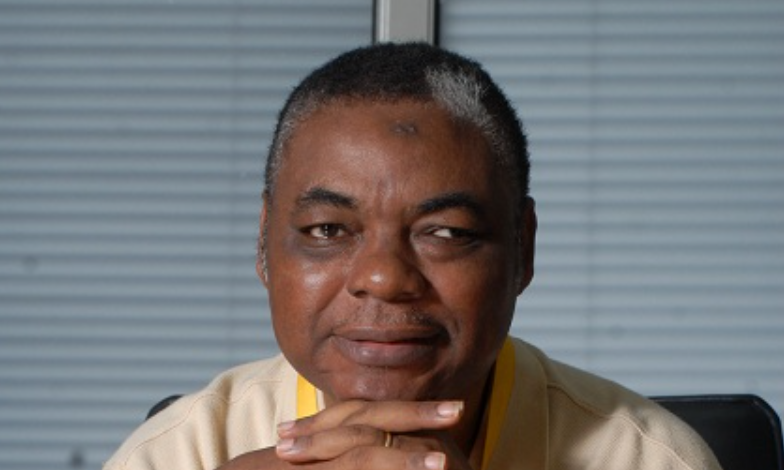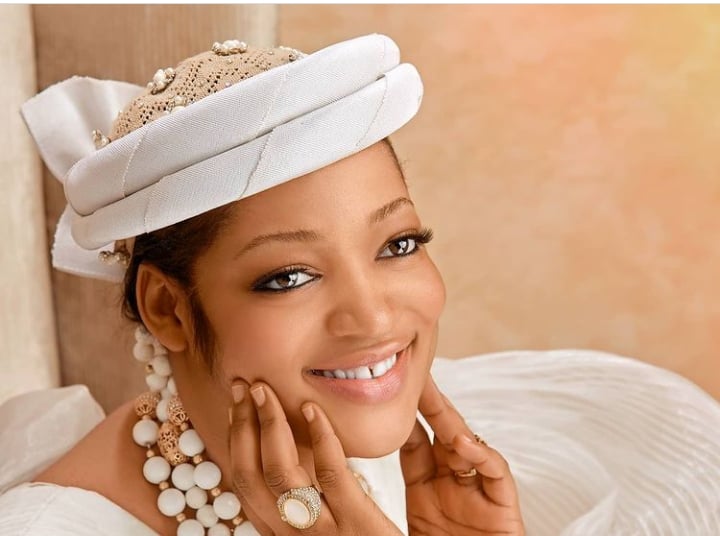LISTEN: Naira Marley drops ‘Why?’ amid controversies with EFCC
BY WALE AJAYI
“To ba ba Woli rin, wa mo ni pa bible
To ba ba Alfa rin, wa mo ni pa tira
Sugbon, to ba ba Papa rin, wa mo ni pa ashakasha to ri Papa tosibe Oba ashakasha ni”
When you associate with Pastor, you will know about the Bible
When you associate with Islamic cleric, you will know about the Quran
But when you associate with Abass Akande Obesere (aka Papa Tosibe) you will know about vulgarity or immorality because Papa Tosibe is the King of vulgar and indecent lyrics.
This was a line in the song of popular Abass Akande Obesere (aka Papa Tosibe) in the late 90s and early 2000s that was the rave of the moment. Obesere is known for his brand of fuji music filled with vulgar and immoral lyrics “making explicit and offensive reference to sex or bodily functions” especially of females.
Advertisement
For starters, “ashakasha” in Yoruba can pass for vulgar, brash, crass, indecent, dishonourable, unethical, bad, immodest, rude, impolite, disrespectful references in a way synonymous with the very minute group of scavengers, dirt-truck pushers, bus conductors, illiterate and immoral meat vendors and few others in that category. It’s antithetical to the normal and expected standard code of “omoluabi” (well-trained) known to the Yorubas. It is very uncommon for musicians to be bold enough to sing vulgar lyrics in the past not only for fear of regulatory censorship but most importantly because of societal rejection. Many artists have towed this line of “Saje Fuji” before Abass Akande and even though he also didn’t start his musical career with “Saje” but for economics of scale.
Saheed Osupa came along as a modest fuji musician switching between the mainstream fuji and the Saje brand. He gave a brief history of practitioners of the genre of vulgar fuji in his album, ‘London Delight’. In his account, Saura Akere Suraju was the pioneer of Saje Fuji. He was then followed in quick succession by Ilori Alarape Latifu, Alani Comma Musibau, Akande Abass Obesere (Papa Tosibe), Osupa Saidi, and most recently Mama Yabiz Saint Janet (omo ti o deseri) even though her art is more of a highlife than Fuji.
Despite Yoruba culture’s strict moral discipline and non-acceptance of any form of corruption of societal morality either in the form of music, movies, or general art, these special breeds still carve a niche for themselves though they are in the minority. In fact, back then associating with songs like this could easily make one be categorised as a low-level person, crass, or illiterate. The reserved and educated ones of that era would prefer Juju music, a genre of music evolving from highlife, dominated by the duo of Chief Commander Ebenezer Obey and King Sunny Ade or at best a moral-dominated original brand of fuji of Dr. Sikiru Ayinde Barrister, Kolawole Ayinla Killington, Wasiu Ayinde Marshall Oluaye, Shina Akanni Aroworeyin, and Adewale Ayuba to some extent. Funky Juju of Dayo Kujore, Dele Taiwo, and Afro Juju of Sir Shina Peters also come under this category even though this group also have a spice of excitement in their lyrics albeit in coded and modest languages only for the understanding of matured minds only.
Advertisement
Like anything for the moment, the fame and popularity will gain prominence quickly but people soon get tired of the vulgar brand of fuji and it has been difficult for those who particularly specialised in this brand to either continue to produce more lines or change and cross over to the mainstream of fuji or the neo-classical fuji currently been played by King Wasiu Ayinde Marshal (K1), the Mayegun General. Saidi Osupa for instance, couldn’t stay too long on the Saje sub-genre before retracing his path back to the fold of the mainstream fuji with deep cultural inclusion and party dance all tracks. Pasuma progressed as an extraordinary entertainer though his “Orobokibo” brand of youth-appeal fuji wasn’t any better than those of “Saje” in vulgar lyrics in his early days. However, as an artiste who consistently innovates and transforms, he has been able to gradually pull away from the low-class street brand to a more corporate and upward-mobile brand. He represents one of the most astonishing brand evolutions in his art.
The culture of playing and listening to music has always been with us for long. My generation, in particular, always wakes up to music in the house and within the neighbourhood. Long before MP3, MP4, Android phones, and iPhones, loud music always rented the air in the afternoon from record shops that littered the streets of Mushin and other low to middle-income neighbourhoods in Lagos and other major cities. It’s quite uncommon for any children of that period not to have a good mix of different genres of musical experience when you hear it in your face-me-I face-you blasting from a neighbour’s room or from the records store’s speaker when you trek your way back home from school in the afternoon before another night session of listening to music in the neighbourhood. Music no doubt played a major part in our upbringing and socialisation. Fast-forward, many young lads of the 90s and early 2000s are now grown-ups and quite a few are doing music in the hip-hop or dance hall genre.
How then can anyone expect anything short of what has been built and coded in society for some years past manifesting in the lyrics of most new-generation musical artistes? Vulgarity, immortality, immodest, and every other thing that can be thrown in and out. More or less like hell was let loose. To summarize most of the songs is to just view it from the lens of drugs, alcohol, girls, nudity, violence, sexuality, promiscuity, wealth, luxury cars, VVIP treats, private jets, pieces of jewelry, gangs, and parties to say the least. From Dbanj to Konga, Dagrain, Olamide, Reminisce, Wizkid, 9ice, Iyanya, Naira Marley, Zlatan Ibile, Slim Case, Portable, and others. Naira Marley, in particular, took “Saje” or better put vulgar and immoral lyrics to another condescending level with the track “Soapy” a musical story about the masturbatory tendency in correctional centres. Away from the days of The Remedies – Eedris Abdulkareem, Eddy Montana, Tony Tetuila, The Plantation Boyz, – 2Face, Face, and BlackFace, Paul Play Dairo when lyrics are at least decent and modest, it has now almost become a norm to sing with vulgar and indecent lyrics to attract commercial values and followership.
There’s always a thin line between creative innovation and compliance with the code of societal norms. Wholesomely censoring everything creatively new will be anti-development but generally throwing the gate open without in-depth societal impact assessment also could destroy the society beyond the gains of the innovation. The latter is the situation we find ourselves and sadly so. For instance, the lyrics of music of the 90s and early 2000s are usually filled with morals preaching contentment and hard work leading to gradual success and delayed gratification. Today, a musician picks a mic and waxs a song saying: “You must just have to be rich even if you have to be an internet fraudster or an overseas marriage scammer, you must just be rich” and he went ahead hailing celebrated people of questionable wealth and characters.
Advertisement
Apart from the danger of getting rich quickly at all costs among the youth, the entire moral fabric of society has been torn beyond repair. Today, hard work doesn’t pay and individuals with moral principles and upright behaviour don’t cut the fancy of most people. They are quickly labelled old-fashioned. Almost everything is viewed from the point of how much money is involved and not how much integrity. Abnormal and condemnable social behaviours are now normal and acceptable now. There are no more voices condemning abnormalities. I bet most of those voices have been silenced by poverty. Sociopaths are now the celebrities and role models in society and not the upright. Individuals are destroyed, family values are eroded, societal norms are corrupted and there’s confusion in the land and greater danger lies ahead.
Often, we assume development is just about good roads, schools, hospitals, bridges, transportation, and every other good thing except a morally conscious society. As much as these are crucial, they will be counter-productive to fundamental social issues we are faced with. Regrettably, it appears individuals and authorities have not seen the need to begin to address these issues head-on.
Are we surprised people are vandalising and carting away the metal installations of new railway infrastructure just to sell and make quick monies? How about the rate at which people steal power cables powering street lights on bridges? Or the rate at which young men don’t see anything wrong in having many baby mamas without marrying any and young girls prefer this arrangement and proudly do so in exchange for “fame and fortune” instead of being properly married and living a decent life? How did we get here?
To be continued
Advertisement
Ajayi is an engineer, management strategist, and development advocate. He writes from Mushin, Lagos.
Advertisement
Views expressed by contributors are strictly personal and not of TheCable.






